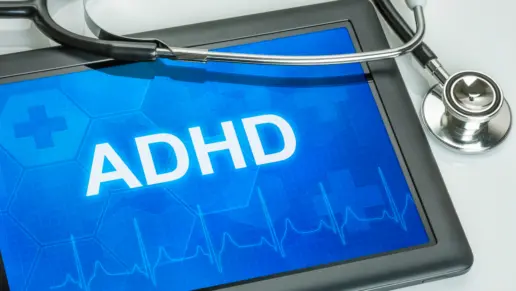Antisocial personality disorder is a mental health condition that affects approximately 2 to 3% of adults in the United States. According to the Diagnostic and Statistical Manual of Mental Illness (DSM), the American Psychiatric Association’s professional guide to mental health conditions, there are 10 personality disorders that can be organized into clusters.
Antisocial personality disorder falls into cluster B and is characterized by dramatic and unstable emotions and impulsive behaviors.
People with ASPD show a long term pattern of disrespect toward others without feelings of remorse. They may manipulate or take advantage of someone to meet their own needs and disregard the law or the rights of others. Individuals with antisocial personality disorder typically have complicated relationships and often have trouble meeting responsibilities related to family, work or school.
Antisocial Personality Disorder Symptoms
Individuals must exhibit three or more of the following to be diagnosed with ASPD:
- Physical aggression, hostility or violence toward others
- Reckless or impulsive behavior without regard for self or others.
- Breaking the law or disregarding rules and social norms
- Feeling angry, more powerful or better than others
- Using wit, flattery and charm to manipulate, lie or deceive others for
- personal gain or enjoyment.
- Not taking responsibility for actions or behaviors
- Not showing remorse, regret or concern for behaviors
- People with a diagnosis of ASPD, especially if left untreated, may face numerous psychosocial complications including:
- Arrest or incarceration
- Inability to meet personal, social, work or school commitments.
- Development or worsening of other mental health conditions including depression and anxiety
- Substance use disorder
- Suicide
People who develop a co-occurring substance use disorder often have questions about treatment access, including what insurance may cover. If you’re trying to understand how different plans support behavioral health services, you can learn more about rehab options and see how substance use treatment benefits typically work.
FAQs
An official diagnosis of antisocial personality disorder is made after a psychological evaluation is performed by a psychologist or psychiatrist. This evaluation allows for the provider to identify patterns of behaviors and thoughts that the DSM-5 has listed as criteria for a diagnosis of ASPD.
Furthermore, a person must have evidence of a conduct disorder before the age of 15 in order to be diagnosed with antisocial personality disorder as an adult.
Children can show signs of ASPD however, ASPD is generally not diagnosed before the age of 15. Children who show signs of aggression toward people and animals, destruction of property, lying, theft and serious violations of rules are usually said to have conduct disorder. Warning signs for children may include setting fires and extreme cruelty towards animals.
However, it’s important to remember that conduct disorder has overlapping symptoms with other diagnoses such as attention deficit hyperactivity disorder (ADHD), depression and oppositional defiant disorder.
This is why it’s critical to get the correct diagnosis to determine the correct treatment plan.
Treatment for antisocial personality disorder includes medication and psychotherapy, often a combination of both. Medications such as antidepressants (eg, sertraline or fluoxetine), antipsychotics (eg, risperidone or quetiapine) and mood stabilizers (eg, lithium or carbamazepine) may help to manage aggression, depression and erratic moods.
Psychotherapy, including cognitive behavioral therapy (CBT,) mentalization based treatment, and motivational interviewing (MI) have been found to improve symptoms of ASPD. In addition coping skills training may be useful in controlling impulsivity and aggression and in regulating emotions.
Treatment for ASPD is a lifelong process. For some, this may be incredibly difficult because they do not believe there is anything wrong with their behavior and might not seek treatment. For those who accept treatment, they must remember that stopping treatment can worsen symptoms, putting them and those around them at risk.
Antisocial personality disorder is considered a lifelong condition. However, for some people, the symptoms may decrease over time. Research suggests that the symptoms of ASPD are most severe around the age of 20 and sometimes improve by 40 years of age.
Individuals can manage their condition through therapy which helps them to modify behaviors and lessen the risk of harming anyone around them.
Can Someone with ASPD Have Healthy Relationships?
People with ASPD can have healthy relationships, but usually not without treatment. People with antisocial personality disorder often struggle to express love in a healthy way and may lack empathy or emotional connection.
Treatment, including psychotherapy and, when appropriate, medication helps individuals with antisocial personality disorder to manage their symptoms such as aggression and reckless behavior. Treatment also helps people with ASPD learn to recognize that their behavior is harmful to themselves and others.
What Causes Antisocial Personality Disorder?
The exact cause of antisocial personality disorder is not known. However, researchers believe that genes and brain development may play a role.
Genetics may make a person more likely to develop ASPD as well as certain environmental situations, especially neglect and abuse. Other risk factors may include a diagnosis of childhood conduct disorder, a family history of ASPD or a diagnosis of another mental health condition.
Studies suggest that men are diagnosed with antisocial personality disorder three times more often than women. Moreover, individuals with ASPD will often have co-occurring mental health disorders such as depression anxiety, bipolar disorder or substance use disorder.
Some individuals with a diagnosis of ASPD may have abnormal levels of neurotransmitters, namely serotonin. Because serotonin helps to regulate mood and feelings of happiness, abnormal levels of the neurotransmitter may play a role in the emotional and behavioral dysregulation that characterize the condition.
As a Cluster B personality disorder, ASPD is classified with a range of other conditions, including borderline personality disorder (BPD), histrionic personality disorder and narcissistic personality disorder. Each of these conditions involve dramatic and erratic behaviors including intense, unstable emotions and impulsive behaviors.
Is Antisocial Personality Disorder the same as Sociopathy?
ASPD is one of many personality disorders, with sociopathy being an unofficial term used to describe a person with antisocial personality disorder. Historically, antisocial personality disorder was also referred to as psychopathy.
Current research is divided, with some defining psychopathy as a form of ASPD and others defining it as a separate disorder. While ASPD and psychopathy have similar characteristics, a person who is described as being a psychopath tends to have more violent and severe behavioral traits than people with ASPD.
Antisocial Personality Disorder Treatment and Specialists
ASPD can be hard to treat. Acknowledging that one needs help is often the most difficult and yet the most important step in getting better. This is because many people with the disorder do not think that there is anything wrong with them or their actions.
Antisocial personality disorder shares characteristics of other mental health conditions. A correct diagnosis of ASPD help to inform the treatment process. A diagnosis is made on the results of a psychological evaluation, which is done by a psychiatrist or psychologist.
Once a diagnosis of ASPD is determined, an appropriate treatment plan that includes psychotherapy and possibly medication can be implemented.
Because individuals with antisocial personality disorder may have a history of criminal activity and face incarceration for their actions, treatment may be provided while serving their sentence. Programs such as democratic therapeutic communities (DTC) are becoming more widespread in jails and prisons.
These evidence based programs help people who are motivated to transform their negative behaviors and learn healthy coping skills.
If you’re looking for mental health or substance use programs that specialize in personality disorders, you can also learn more about rehab options to explore treatment centers based on your specific needs.
Nearby Addiction Centers That Treat Dual Diagnosis
Finding facilities near you…





